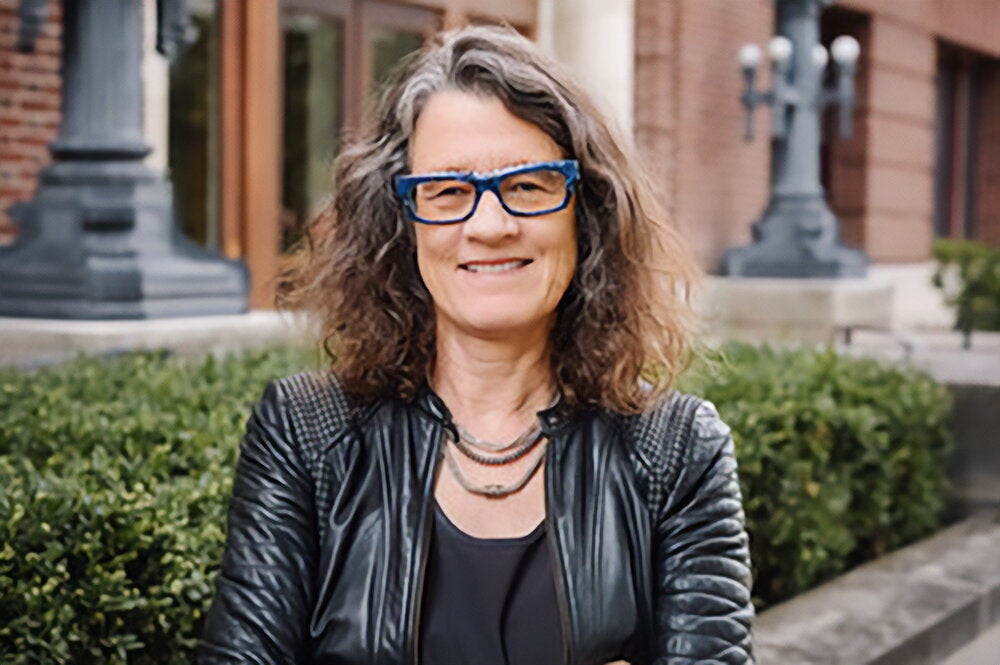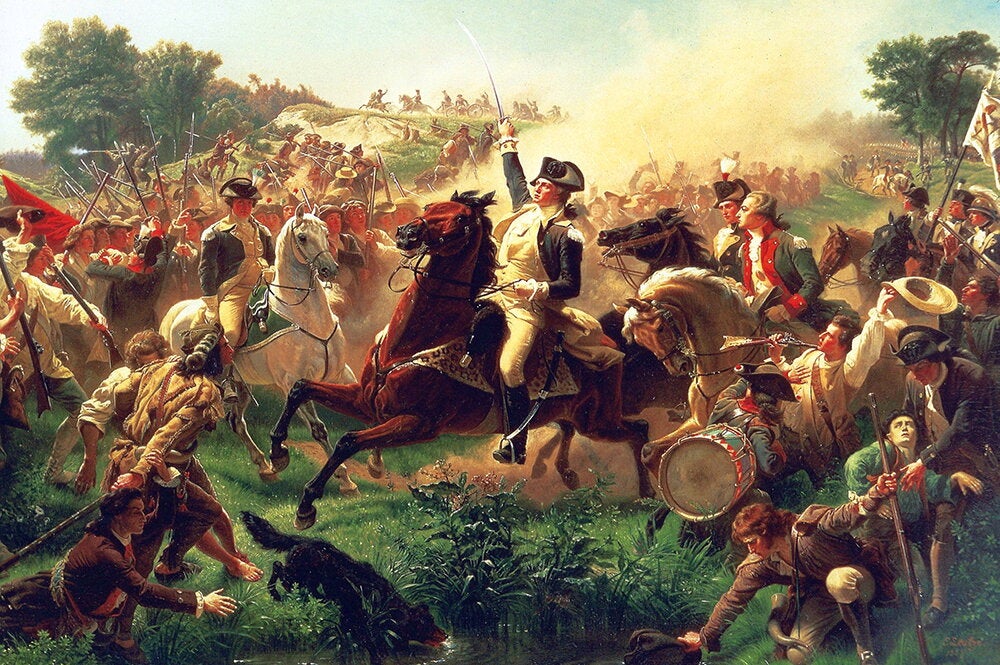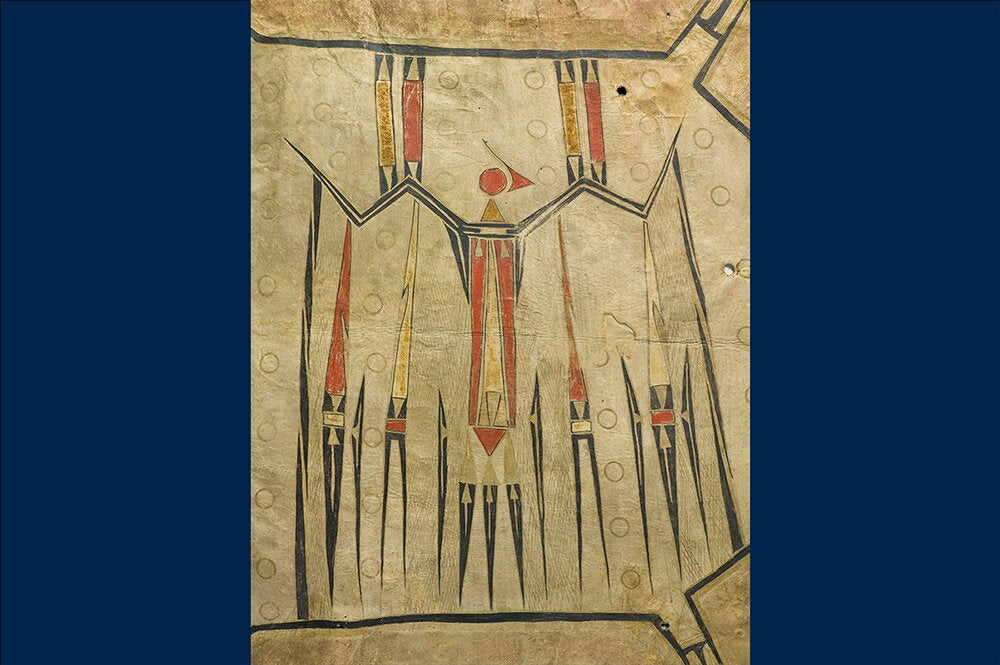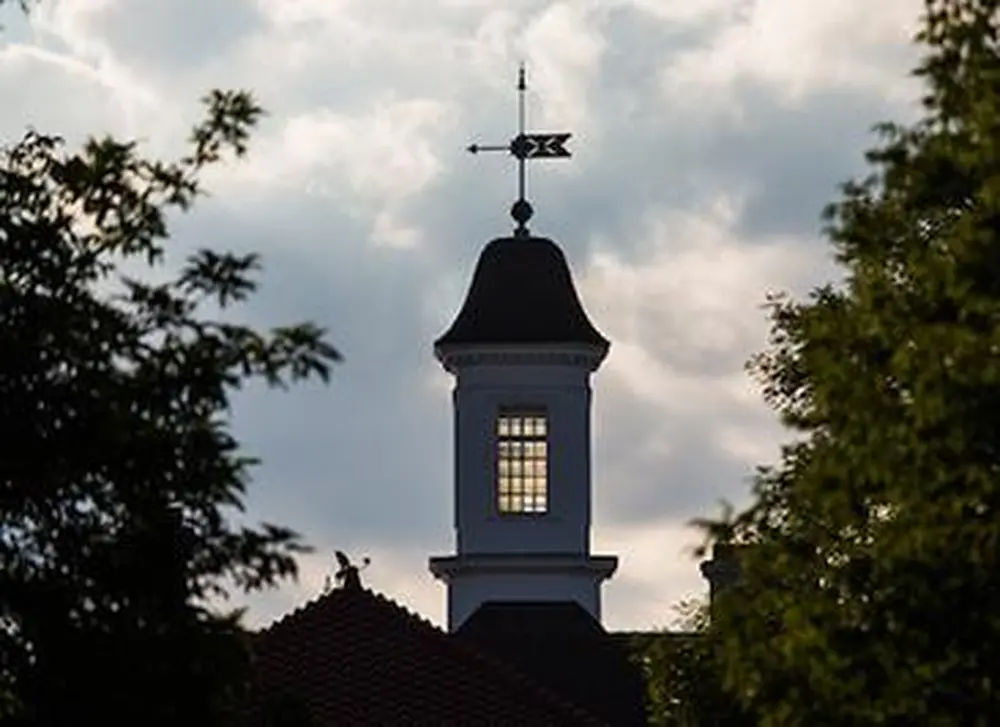
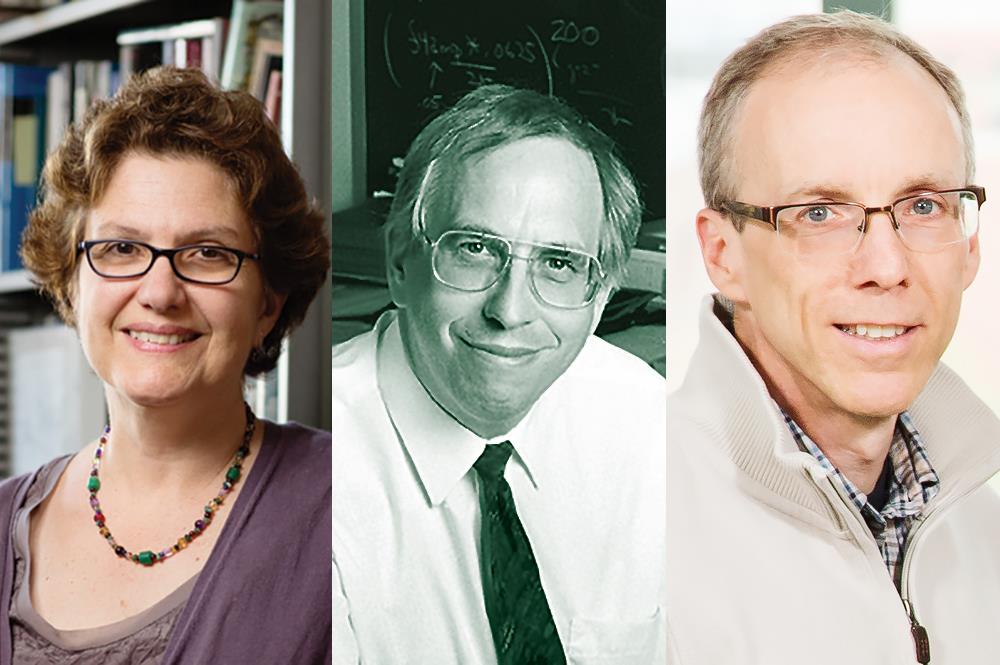
Can anyone predict the future? If someone in 1867 had asked John Milton Gregory—this institution’s visionary, founding regent—what would happen over the next 150 years, would he have even guessed that Illinois Industrial University would switch names to the University of Illinois, much less that people in 2017 would carry entire libraries of information in their jacket pocket?
So maybe it’s not fair to ask LAS professors what will happen in the liberal arts and sciences over the next 150 years. But in honor of U of I’s sesquicentennial, we asked anyway. Fortunately, not only does Illinois employ some of the best minds in academia, it also employs some of the most gracious. Here are their replies:
Antoinette Burton, professor of history, director, Illinois Program for Research in the Humanities
The humanities are what we make them. If we believe the humanities should be central, and if we have the will to make them so, then they will be... if our only goal was an enhanced job market for students, the humanities would be indispensable. But we also want them to be whole, well-rounded citizens.
It’s in humanities classrooms where debates can and do happen. That’s where students can arrive at a critical appreciation for American traditions and values, whether they are strong or in peril. We need this kind of humanities-based engagement now more than ever. In the coming decades... we need to take a disciplined stand—an energetic, informed, and cross-campus stand—for the central role of the humanities at Illinois.
Jeffrey Moore, Murchison-Mallory Professor of Chemistry, interim director, Beckman Institute for Advanced Science and Technology
Will the human condition be improved, and if so, how? As I wrote the question, my eyes were drawn to the word “human.” It occurred to me that the next 150 years could see a sharp break in the evolutionary pathway of H. sapiens. Is this one of those singular points in time – a fork in the evolutionary road?
Until now, human evolution has been largely out of our control. Won’t that all change soon? The most obvious way is through genetic engineering. Another possibility is symbiosis with genetically modified organisms, such as an engineered microbiome that performs unconventional tasks tightly integrated with the desires and needs of its host species. A third and perhaps even more disruptive possibility is the hybridization of humans and machines. Yes, it’s more than just a little unnerving to think along these lines.
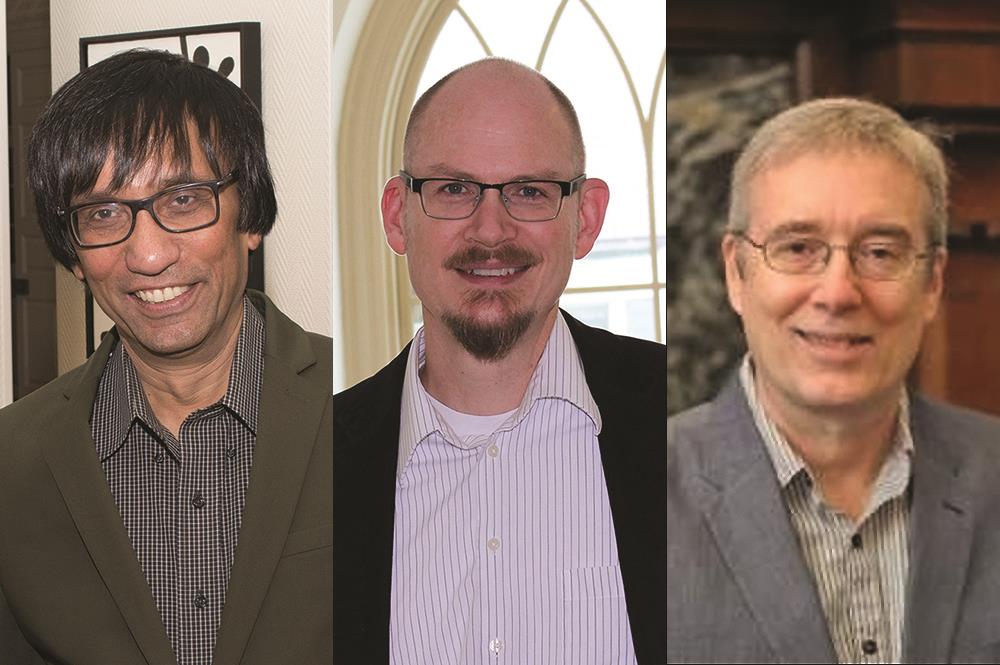
Risk framing applies to much of what we do, including my work (and that of others in our department) on climate change and resulting societal impacts, but also to our work on understanding the processes underlying clouds, hydrology, and severe weather, and our studies of air quality.
Our department connects with all parts of LAS, and will do this even more so in the future. All aspects of our society, and its connections with urbanization, land use, food security, energy development, and water availability, relate directly to the research coming out of atmospheric sciences. LAS cuts across all of these different connections. This puts LAS at the forefront of defining the future of our society.
Jean-Philippe Mathy, professor of French and comparative and world literature, director, School of Literatures, Cultures, and Linguistics
In addition to courses for students who major or minor in languages, national literatures and cultures, and linguistics, we need to continue to offer courses for students who are not majoring in the humanities, but are expected to be familiar with global issues. Employers are looking for students who have strong critical thinking skills and an ability to communicate well, and are knowledgeable about the world.
Shaowen Wang, professor of geography and geographic information science, founding director, CyberGIS Center for Advanced Digital and Spatial Studies and CyberInfrastructure and Geospatial Information Laboratory
The development and use of geographic information science and systems (GIS)—computerized approaches to capturing, managing, transforming, analyzing, and visualizing geospatial data—have grown immensely for the past several decades. This growing trend will persist into the foreseeable future enabled by rapid progress of related technologies and driven by tremendous needs in numerous fields (e.g., agriculture, business, ecology, emergency management, environmental engineering and sciences, geography and spatial sciences, geosciences, public health, and social sciences, to name just a few).
Spatially heterogeneous and interdependent changes across the globe, such as climate change, competing land uses, environmental degradation, and population growth have posed many grand scientific and societal challenges. To tackle these challenges, as a geospatial data deluge permeates broad scientific and societal realms, requires critical thinking of interactions of spatial patterns and their driving processes across a number of spatial and temporal scales through cyberGIS approaches.
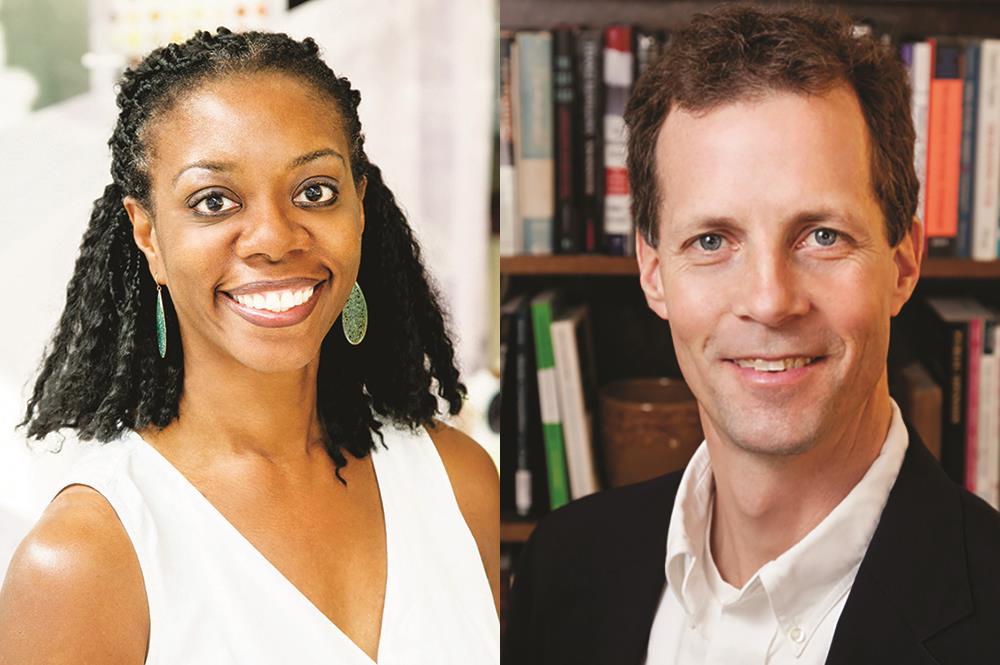
I think part of the growth in Latino studies departments and programs across the country is driven by the growth in the Latino population. Latinos are now the largest minority group in the United States. Knowledge of this group has become indispensable if students are to be engaged citizens and forward thinking leaders in today’s society. So my sense is that Latino studies as a field will keep growing and creating more knowledge about Latinos in order to meet the need of educating the American populace.
I also think that ethnic studies programs more generally will grow. We live in an increasingly diverse society. We will need expanded ethnic studies programs in order to provide students with the skills and knowledges they need to be active and successful participants in our increasingly multi-racial, multi-cultural democracy.
Milan Bagchi, Deborah Paul Professor of Molecular and Cellular Biology
With its traditional core areas of strength in biochemistry, cell biology, microbiology and physiology, (the School of Molecular and Cellular Biology) promotes translational research that advances our understanding from the molecular and cellular level to human application. For example, modern genomics, in which multi-species comparisons are often conducted to understand gene function, continues to provide insight into the evolution and function of genes and their dysfunction in disease, and holds the promise of personalized medicine in the future.
With the establishment of the new Carle-Illinois College of Medicine and an upswing in our collaborations with the bioengineering faculty on the campus, we envision developing a significant translational component in key research areas, such as molecular and systems neurobiology, metabolic health, and cancer metastasis.
Ted Underwood, professor of English and information sciences, LAS Centennial Scholar
Much of what we now take for granted about literary study—for instance, our focus on the close reading of individual works—has only been central for 75 or 100 years. Things could change an enormous amount in another 150 years. The meaning of the word ‘literature’ itself could change.
Imagine if artificial intelligences learn how to tell an entertaining story. It's an achievable goal, I think less than 100 years away. The effect on human storytelling could be enormous. A special prestige might accrue to the kinds of literary effects that are still difficult for artificial intelligence to reproduce. Literary study could become fiercely divided between scholars who are using computers to understand literary history, and those who define true literary value as the thing that remains elusive and unexplained.
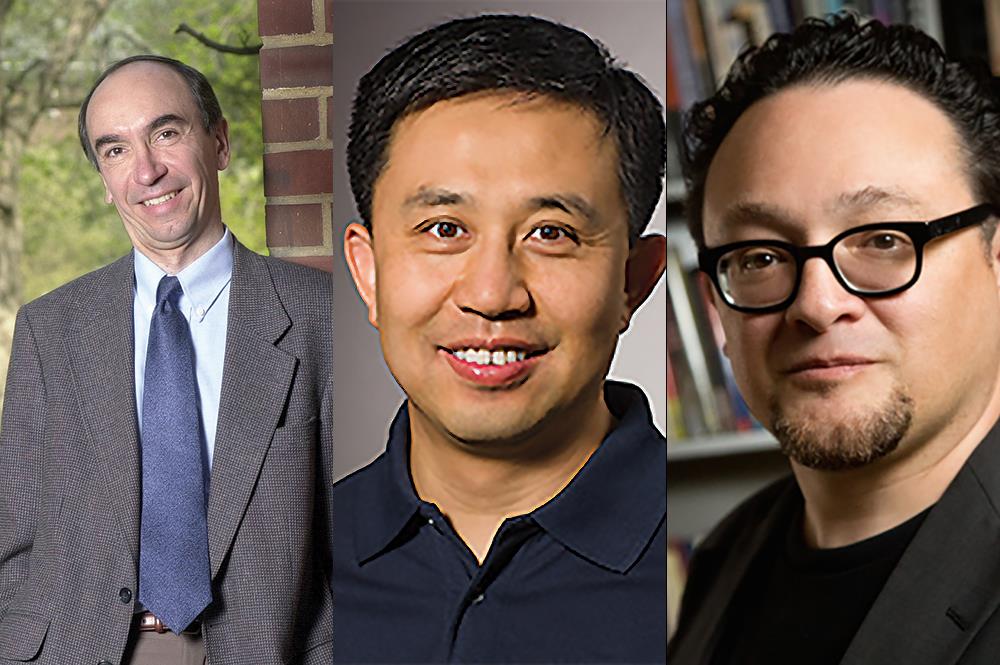
How can our research create advancements that will be relevant 150 years from now for the local community and the global society? One current trend involves working with life and behavioral scientists to synthesize the research in these fields and to create new research about how social inequality gets ‘under the skin’ and negatively affects the health of people of color in U.S. society.
For decades, researchers have hypothesized that chronic stress is a critical mechanism by which the social environment results in poor health and health disparities. However, the empirical literature often lacked clear information about the biological mechanisms that link social inequality, chronic stress, and health. Social scientists and humanists are poised to transform what we know about health and resiliency with sophisticated social determinants research about the role of cultural practices, group meaning, and resisting social injustice in promoting biological homeostasis and longevity.
Douglas Simpson, chair, Department of Statistics
The way people do statistical research now is quite different than how it used to be, due to the computer power and large scale of data. I’d foresee in the future that trend is going to continue. You’re not directly analyzing things anymore; you’re setting up computer programs that will analyze the data in a reproducible way.
We’re seeing statistical methods being engineered into systems (such as) search engines, like Google, and recommender systems, like Amazon recommending products... It’s an increasing trend. As things become more automated, for example, self-driving cars, they’re using an adaptive system which has computational and statistical methodology built into it along with computer vision. Those systems need to be monitored and adaptive so that as conditions evolve—for example, if we change how we build roads—the system can’t be so rigid that it can’t adapt to those changes. There’s still a great deal of adaptability that still has to be developed.
David Tewksbury, interim associate dean for social and behavioral sciences
There’s a trend within (social and behavioral sciences) to be ever more specialized. But there’s a point where it stops, and that’s at undergraduate education. Increasingly, the narrow questions researchers study are connected. We need our students, our graduates, to know a lot about their topic of study, but also understand its connection to everything else going on in the world.
A society is better off the more its people are educated. I think a liberal arts education is what brings most of those benefits. That means that our future in LAS is bright. A good education in the future will hopefully give our students the courage to stop and look sideways instead of right in front. That’s where all the action is.
Editor's note: This story originally appeared in LAS News magazine (Spring 2017).
